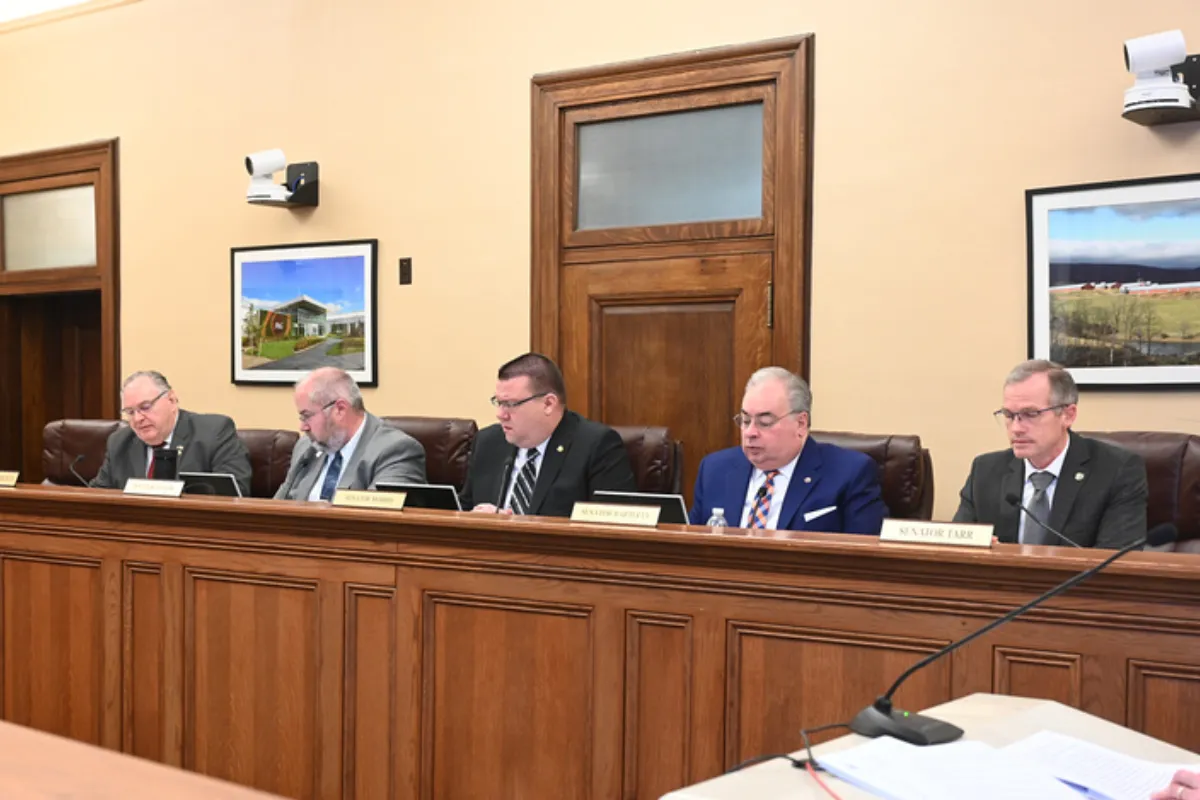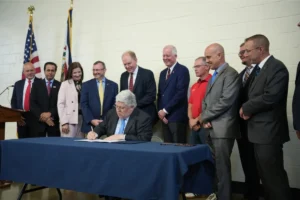The governing body for high school athletics in West Virginia is under intense scrutiny as state senators debate its future. A proposed bill, Senate Bill 804, aims to restructure the West Virginia Secondary School Activities Commission (WVSSAC) as a state agency, shifting its oversight from a private, nonprofit organization to government control.
The bill would clarify that SSAC funds are public and require the governor to appoint the executive director. However, after a lengthy debate in the Senate Education Committee, lawmakers decided to move forward with a study resolution rather than immediately pushing the bill toward law.
What Senate Bill 804 Proposes
The West Virginia Secondary School Activities Commission Reform Act proposes significant changes to how high school athletics and extracurricular activities are governed. If passed, the bill would:
- Restructure the SSAC as a state agency rather than a private entity.
- Appoint an executive director through the governor, with Senate approval.
- Grant the executive director authority to investigate and rule on violations of sports rules and disputes.
- Limit appeals of SSAC decisions to the Intermediate Court of Appeals.
- Implement a competitive balance formula for school classifications, including transfer numbers.
Currently, the WVSSAC oversees athletics and activities for public and private secondary schools in the state, with oversight delegated by school principals. If the bill is enacted, regional school leaders may have less control over key athletic decisions.
The Debate Over Political Influence in High School Sports
The proposal has sparked a heated debate among lawmakers, school officials, and athletic directors about whether high school sports should be governed politically.
Senator Eric Tarr, R-Putnam, defended the bill, arguing that the WVSSAC is already political because families and communities frequently reach out to lawmakers about sports issues.
“It’s already political, and the fact that 20 senators signed on to this bill shows that people are unhappy with how the SSAC operates,” Tarr stated.
Brooks McCumbee, a retired football, basketball, and softball official, echoed this sentiment, claiming that the WVSSAC lacks transparency and accountability. “Over the last 20 years or so, it’s really gone downhill,” McCumbee added.
Strong Opposition from Athletic Directors and Educators
Many educators and athletic directors have expressed concerns about the bill’s implications.
Tim George, the athletic director at Spring Valley High School, cautioned lawmakers about the potential politicization of high school sports.
“The WVSSAC ensures that our sports are played with integrity and fairness. We need a strong, independent governing body that remains politically neutral. Politics have no place in high school sports,” George argued.
Similarly, Jamie Tallman, a teacher, coach, and athletic director from Grant County, highlighted that SSAC decisions involve a broad community of students, parents, coaches, and school leaders.
“I just want to say that we are the SSAC,” Tallman said. “It’s our students, our parents, the coaches, the athletic directors, and our principals who make up this organization.”
SSAC Director Responds to Legislative Concerns
SSAC Director David Price also addressed the Senate committee, offering a measured response to the proposed changes. While he acknowledged some potential improvements, he also noted serious concerns—including the removal of academic eligibility requirements for students not enrolled in public or private schools.
“There are some concerns with this bill,” Price stated. “For example, it appears to eliminate academic eligibility requirements for certain students, which could create an uneven playing field.”
What Happens Next?
While Senate Bill 804 will not immediately become law, senators will continue studying how the WVSSAC operates and whether restructuring it as a state agency is the right move. The study resolution, set for a vote on Monday, suggests that the debate over SSAC governance is far from over.
With 20 of the state’s 34 senators sponsoring the bill, changes to high school athletics oversight could still be on the horizon. Whether this leads to a more transparent and efficient system or a politically influenced sports landscape remains to be seen.
Final Thoughts
The future of West Virginia high school athletics governance is at a crossroads. While some argue that more government oversight could ensure fairness and accountability, others fear that it could inject politics into student sports.
As lawmakers continue to examine Senate Bill 804, the question remains: Should high school athletics governance remain independent, or is it time for a state-led approach?











